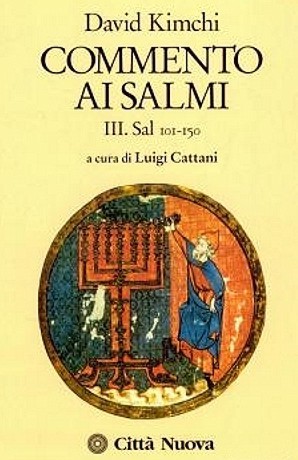Lessico
David Kimhi
Nato intorno al 1160 a Narbonne o a Tolosa, in Francia, morto forse a Narbonne intorno al 1235. Sillabato anche come Kimchi, Kimhi, o Qimhi, di soprannome Radak (acronimo di Rabbi David Kimhi), detto anche Maistre Petit (Piccolo Maestro).
Studioso europeo della lingua ebraica i cui scritti sulla lessicografia e sulla grammatica ebraica divennero opere basilari durante il Medioevo, e la cui reputazione eclissò quella di suo padre, Joseph Kimhi, nonché quella di suo fratello Moses, che era un studioso di grammatica.

Great
Leaders of our People
“Radak” Rabbi David Kimchi
(1160-1235)
www.ou.org
“Radak” Rabbi David Kimchi, was born in the city of Narbonne in the Provence area of southern France in the year 1160. He was only ten when his father, Rabbi Yoseph Kimchi, passed away and Rabbi Moshe Kimchi took charge of the task of providing young David with a proper education. Of all these outstanding Kimchi’s, Rabbi David was perhaps the “solet,” the finest flour (“Kemach,” the root of the family name, means flour in Hebrew).
His primary contribution was a commentary on all of the TANAKH (Torah, Neviim, Ketuvim). For many students of the Bible, his commentary is perhaps the commentary of choice on the majority of the Prophets and the Sacred Scriptures. He was able to weave together a clear explanation of the text, providing necessary background, making connections clear, often critical of Christian misinterpretations of the text, and with a very useful analysis of grammatical points relevant to the understanding of the Biblical text. He also wrote a separate grammar/lexicon called Michlol, in which among other things he introduced the idea of long and short vowels. He clarified the relationships of the “binyanim,” the structures, of the Hebrew Language by defining the nif’al as the passive form of the active kal.
Much Midrashic material was also elucidated by Radak in his Biblical commentaries.
He was a champion of the Rambam and defended him against critics of his philosophical works. When Solomon ben Avraham of Montpellier promulgated a ban against the “Moreh Nevuchim,” the “Guide for the Perplexed” of the Rambam, the Radak was sharply critical of the ban.
A traditional Torah scholar, whose works had a remarkably modern flavor, he was niftar in the year 1235.